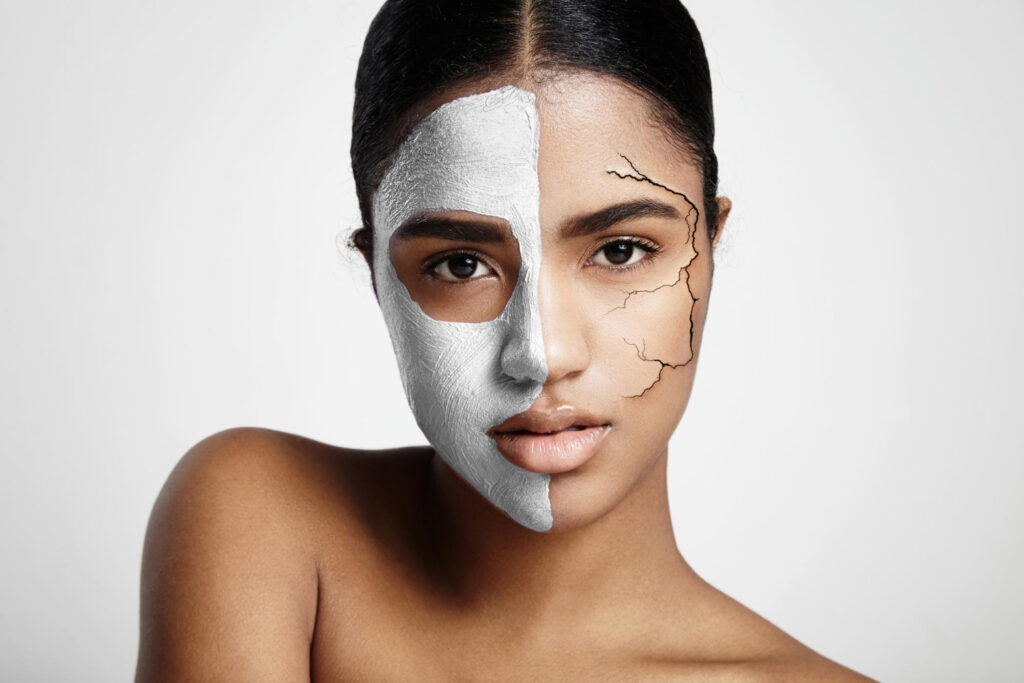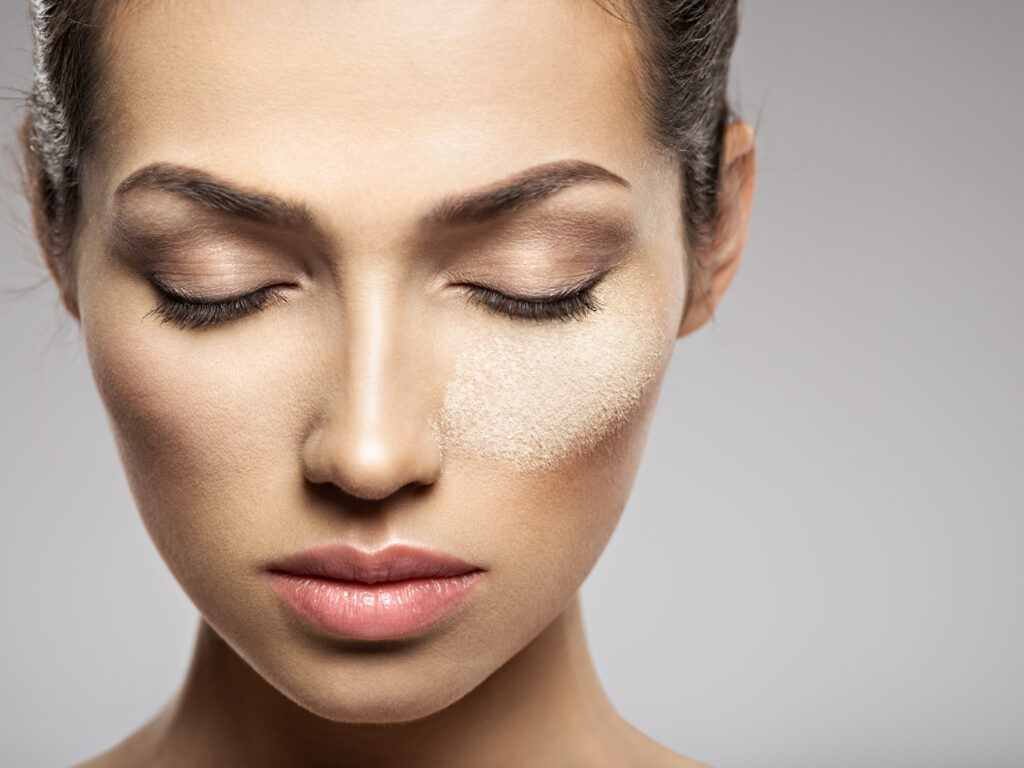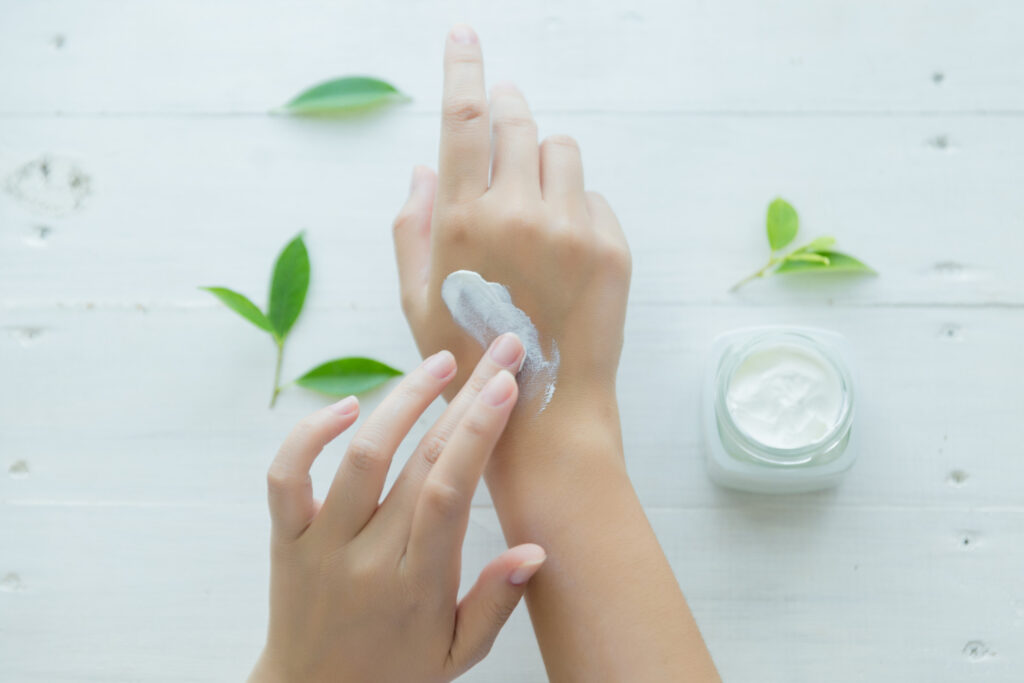Has your skin become dry and itchy suddenly? Does it also feel irritated and super sensitive every time you touch it? Now. You probably ask yourself: why is my skin so sensitive and What have I done wrong, right? Some factors could be responsible for causing that feeling.
Below, I will include the top factors that cause sensitive skin, what sensitive skin is, how to deal with your sensitive skin, and when to see a doctor.
Table of Contents
Key Takeaways:
- Sensitive skin is not a health condition, it’s a symptom of some skin disorders like rosacea, dry skin, eczema, or dermatitis.
- Why is my skin so sensitive? Rosacea, eczema, urticaria, dermatitis, environmental factors, emotional factors, dry skin, and unhealthy lifestyle habits could be the reason why your skin becomes sensitive suddenly.
- Using gentle skincare products, moisturizing the skin regularly, taking warm showers under 10 minutes, using organic products, and drying the skin gently are the best ways that help maintain sensitive skin healthily.
What Is Sensitive Skin?
Sensitive skin is not a diagnosis or disease, it’s a symptom of other skin conditions. Usually, most people won’t know they have sensitive skin until their skin is exposed to certain irritants.
Human skin has a strong lipid barrier which is a fatty outer layer that maintains skin moisture and protects it against damage. People with sensitive skin usually have a weakened and thinner lipid barrier which makes their skin more prone to irritation and damage.
So, sensitive skin can easily become irritated and this could lead to some common signs like redness, dryness, itching, bumps and pustules, and broken capillaries.
You can keep those symptoms under control when you avoid what irritates your skin to maintain a healthy appearance.
Related: The Top 11 Signs That Tells If You Have Sensitive Skin
Why Is My Skin So Sensitive All Of A Sudden?
What could be causing sensitive skin? A dermatologist can help you identify your skin type and find the reasons that make your skin so sensitive all of sudden. Common factors include:

1- Dry Skin
When you don’t moisturize your skin enough, use harsh products, or take hot showers, your skin will lose its natural moisture and become super dry.
Dry skin feels rough, tight, irritated, and itchy. And it looks flaky, cracked, and red.
This condition affects different areas of the body like feet, hands, arms, and lower legs.
How To Fix This?
Find a good fragrance-free moisturizer and apply it to your skin 2-3 times a day to help restore skin moisture and support the skin barrier.
Also, use a gentle soap-free cleanser that is designed especially to suit sensitive skin so it will not strip your skin of its natural oil or dry it out.
2- Rosacea
Why is my skin so sensitive? Well. Rosacea could be the one to blame here. Rosacea is a common skin disorder that affects many people worldwide, including me.
This condition affects the face, making it extremely sensitive to many factors like sunlight, hot or cold weather, wind, spicy food, harsh chemicals, some skincare products, hot meals, caffeine, and stress.
People with rosacea experience blushing or flushing easily, redness, pimples and bumps, dryness, and visibly broken blood vessels on the face.
Related: What Are The Causes Of Rosacea & How To Reduce Flare-Ups
How To Fix This?
Unfortunately, this condition has no cure but some medications, following a healthy diet, and building the right skincare routine can help control the symptoms and improve your skin appearance.
So, visit a dermatologist to examine your skin and prescribe the right medications to help you feel better. And avoid the triggers that can worsen your condition significantly.
Using a fragrance-free moisturizer regularly can prevent dryness, nourish the skin, and reduce redness.
Plus, using sunscreen before exposing your skin to the sun is essential to protect your face against harmful sun rays.
Furthermore, makeup products like primers or foundation can conceal redness and hide imperfections.
Related: The 11 Best Primer For Sensitive Skin & Buying Guide
3- Eczema
Eczema or atopic dermatitis is a skin condition that makes your skin unable to protect itself against aggressors; chemicals in skincare products or detergents, germs, or windy and cold days.
This condition affects different areas of the body like hands, feet, ankles, chest, eyelids, face, scalp, elbows, and knees.
Your skin will be extra sensitive to many products and experience dryness, itchiness, and swelling.
Also, your skin will develop thick cracky skin, small bumps, and red-brown patches on the skin.
How To Fix This?
Use hypoallergenic detergents and soap-free cleansers to reduce irritation and itching.
Opt for a moisturizer designed for people with eczema to reduce the symptoms and soothe redness and dryness. Anti-itch creams that can reduce irritation are also recommended.
If the symptoms persist after changing your routine, consult a dermatologist.
4- Dermatitis

There are two types of contact dermatitis; irritant contact dermatitis and allergic contact dermatitis.
Irritant contact dermatitis occurs when the protective outer layer of your skin becomes damaged because it comes in contact with a certain substance.
You will experience dryness, swelling, red rash, itching, burning, and tenderness. And your skin will also develop bumps, blisters, and scaly skin.
Allergic contact dermatitis occurs when you develop an allergic reaction to different substances like fragrances, soaps, plants, makeup products, lotions, jewelry, or jewelry that contains nickel.
You will experience some symptoms including redness, burning, itching, swelling, tenderness, bumps, and blisters.
How To Fix This?
Irritant contact dermatitis
First, you must figure out what causes the reaction and avoid it in the future to keep your skin healthy.
To treat this condition, you will need OTC steroid creams to help soothe itching and irritation and reduce inflammation. Also, numbing or anti-itch creams will relieve irritation, swelling, and burning.
Avoid scratching the area as this will worsen the condition and increase inflammation. Usually, this condition clears up within a few weeks.
Allergic contact dermatitis
OTC oral and topical antihistamines can help reduce inflammation and relieve itching, swelling, and burning. They can treat the condition effectively.
Also, opt for gentle, fragrance-free hand soap, dish soap, and laundry detergent to avoid allergic reactions.
And to prevent an allergic reaction to nickel, apply a layer of top coat nail polish to the inside of your rings and bracelets before wearing them.
5- Chemical Skincare Products
Skincare products that contain harsh chemicals like sulfate, paraben, fragrances, soap, or alcohol can irritate your skin and increase skin sensitivity in general.
Those products could cause redness, bumps, skin rash, burning, hyperpigmentation, or dryness.
How To Fix This?
Look for skincare and makeup products that are formulated for sensitive skin to maintain your skin health. Hypoallergenic fragrance-free products are most recommended for sensitive skin.
Also, cleaners or detergents that contain mild surfactants are a great option for those with sensitive skin as they will not irritate, sting, or inflame your skin.
6- Urticaria
There are two types of urticaria; contact urticaria and physical urticaria.
Contact urticaria is hives that occur when your skin comes in contact with an irritating substance like fragrances, plants, raw food, and harsh chemicals in skincare products.
This condition causes an immediate reaction including itching, burning, tingling, redness, welts, and swelling.
Physical urticaria is also hives that occur when your skin is exposed to chemicals, plants, cold weather, hot weather, or even exercise.
You will experience some symptoms like itching, swelling, small hives that are red or white, and a ring-shaped rash.
How To Fix This?
Contact urticaria
It takes up to 24 hours for the symptoms to clear up. You will need to take oral antihistamines and pain relievers and apply steroid creams to ease symptoms. They can reduce inflammation and swelling, soothe irritation, and relieve discomfort.
Physical urticaria
It usually goes on its way but you may need to take oral antihistamines to help you feel better faster.
It’s best to keep your hands protected from super cold or hot water and harsh detergents when cleaning by wearing gloves.
Also, wear gloves in winter before going out to keep your hands warm or use hand warmers.
And wrap a large towel around your body as soon as your step out of the swimming pool or shower to avoid this condition.
7- Environmental Factors

Environmental factors like hot weather, extremely cold weather, and windy days can affect your skin health badly, damage the skin barrier, and make your skin extremely sensitive.
Also, Exposure to sunlight without protection can burn and damage your skin and could lead to skin cancer.
Your skin will experience dryness, irritation, redness, and burning. Your skin feels also rough and tight and looks flaky.
How To Fix This?
Don’t go out in the morning without wearing sunscreen with at least SPF 30+, and don’t neglect the chest area as its skin is super delicate.
Sunscreen should be suitable for sensitive skin and free of toxins to avoid skin reactions. Plus, if you experience sunburn, it’s best to consult a dermatologist.
When it’s windy or extremely cold wear gloves and cover your face with a scarf to protect it from damage.
Moisturize your skin daily with a fragrance-free moisturizer to keep the skin barrier protected and maintain your skin’s natural moisture.
Related: How To Repair Sun-Damaged Skin On Chest In 8 Easy Steps?
8- Emotional Factors
Why is my skin so sensitive all of a sudden? you ask yourself this question after being stressed, sad, or angry for several hours or even days!… Like, seriously?
Those feelings can affect your skin health drastically especially if you have rosacea.
They can cause irritation, redness, and acne. Your skin will also appear stressed, dull, and tired.
Related: How To Unclog Pores: 8 Safe Ways To Keep Your Skin Glow
How To Fix This?
Managing stress and other negative emotions can help relieve those symptoms and restore skin health.
You can do yoga, meet with your friends, talk about your feelings, meditate, go for a walk daily, or exercise 3-5 days a week to release those feelings and get rid of negative energy.
9- Unhealthy Lifestyle Habits
Eating spicy food, drinking too much alcohol, eating unhealthy fatty meals every day, and drinking soda instead of water can damage your skin barrier and make your skin so sensitive to the touch
Also, over-scrubbing or exfoliating, using harsh cleaning products, and taking hot showers frequently irritate and dry the skin.
You will experience dryness, redness, irritation, bumps, swelling, and burning.
How To Fix This?
Avoid those unhealthy habits and replace them with good ones. You should drink herbal teas, eat healthy meals full of nutrients, use sensitive skin-friendly products, and drink enough water.
It’s highly recommended to exercise 3-5 times weekly as this helps boost blood circulation which keeps the skin healthy.
Top Tips To Deal With Sensitive Skin?

To deal with your skin the right way to prevent further problems in the future, here’s what you should do:
- Follow a good am and pm skincare routine that suits sensitive skin.
- Use a gentle, soap-free soap to wash your hands.
- Use a gentle and mild facial wash to keep your face clean without irritation.
- Don’t over-exfoliate your skin.
- Opt for gentle, fragrance-free laundry detergents.
- Take warm showers instead of hot ones.
- Don’t rub your skin after a shower, pat dry instead.
- Apply a moisturizer after a shower.
- Before shaving, apply shaving cream or gel to your skin.
- Look for Eco-friendly and organic cleaning products.
- Before using a new skincare product, perform a patch test to avoid reactions.
- If your skin can’t stand perfumes, use essential oils.
Related: The Best Guide To Skin Care Routine For Sensitive Skin
When To See A Dermatologist?
Usually, sensitive skin symptoms can be controlled easily at home but if your symptoms don’t improve, consult a dermatologist.
If you develop a skin reaction, it’s best to consult a dermatologist especially if you experience difficulty swallowing, swelling in the face, or trouble breathing. This could be a life-threatening condition that needs immediate medical attention.
Also, People with rosacea or eczema should visit their dermatologist regularly to check their condition and prescribe the right medications.
Furthermore, you can ask a dermatologist to recommend the best skincare products to use.
The Bottom Line
When you pay attention to what your skin comes in contact with or what irritates your skin, you would be able to answer the question ” Why Is My Skin So Sensitive? ” easily.
But if you have no idea, check the common factors I included above to help you determine what might be causing this feeling! And Let us know what you do to keep your sensitive skin healthy!
Feature Image Source: Freepik.com/@master1305
